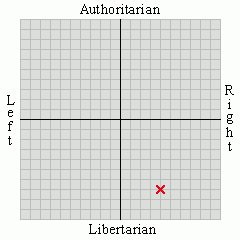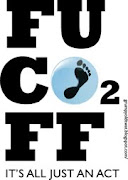NEWSPAPERS, including the Herald, have been ordered to remove old articles from their websites after a court ruled they might interfere with a fair trial.Which of course will completely sanitise the whole internet, yes? Oh, except for Google Cache, obviously. And anything else outside Australia. And probably quite a bit inside Australia that's too much trouble to track down. But apart from that there won't be a mention.
The decision, one of the first of its kind, came after lawyers for three accused men argued jurors might develop prejudice by reading any of 10 selected articles.
The Supreme Court yesterday ordered the removal of these reports from the online sites of various newspapers for the duration of the trial over the death of the former drug dealer Terry Falconer, due to start next week.
But the decision has no impact on thousands of other internet hits for the names of one or more of the accused - Anthony John Michael Perish, Mathew Robert Lawton, and Andrew Michael Perish. The court heard a Google search last month found 6930 references to the name of one of the men on Australian sites alone.Probably more than that now that there will be a heap of articles on the suppression of previously published articles. And you can be sure that people will look them up out of curiosity for what it is that's being suppressed. Streisand effect, anybody?
The order was imposed even though jurors will be told not to look up the case on the internet or discuss it with anyone.Okay, it's right that jurors should be told this and doing so deals with them like adults. Censorship is sending a message that just to be on the safe side the court wants to make sure nobody eats cookies by putting the jar on the top shelf, and if everyone is really good there will be cookies later. Except of course there are cookies literally everywhere and moving the contents of one jar has a pretty negligible effect on availability and possibly a negative one on the willingness to cooperate. So why even do it?
Carolyn Davenport, SC, the barrister for one of the accused, had argued that a juror might inadvertently speak to someone who had read one of the articles online, and the court needed to protect them from ''events that put their integrity to the test''.Hello? Ever hear of the Streisand Effect?* Yes, a juror might have happened to speak to someone who'd read one of the articles, and now they're probably even more likely to speak to someone who's read a copy or précis or comment or blog because you're drawing attention to it by getting the original 10 articles censored. And protecting the jury members from having their integrity tested? You idiot. For one thing it doesn't offer any such protection when all you've achieved is to censor ten articles and draw attention to the fact there are thousands more out there, and for another you may have just given the jury the impression that you and/or your client thinks they can't be trusted. I wouldn't presume to tell you your job but if you were representing me I'd be hoping you'd say and do things to win the jury over, not tell them that we don't trust them. I'd be wondering how many jurors might be thinking to themselves, "I wasn't going to look but fuck it, now I'll have a peek just to work out what it is they don't want me to see."
Justice Derek Price agreed and said the court had the obligation to do whatever it could to protect the integrity of the process. ''The confidence in the integrity of the jurors does not mean the court should not protect them from incidents that put their integrity to the test,'' he said.Of course the court must make sure trials are fair but ask yourselves if the censorship of ten out of thousands of web pages actually achieves that, particularly when the only people who are being ordered to remove pages are in a position to make the whole censorship order itself very, very public.
Last week, the chief executive of News Ltd, John Hartigan, called for an end to ''the nonsense'' of take-down orders. ''They are unnecessary and ineffective … the modern equivalent of burning books,'' he argued.I'd have said just one or two books while leaving the same content available on whole shelves.
The barrister Dauid Sibtain had argued the orders were unnecessary and the media organisations should not be in a position ''less favourable'' than others who had posted material.For why?
The orders ''lacked practical utility'' because other copies of the article may remain online, but Justice Price rejected this.
Justice Price said the inability to remove all offending material did not mean the removal of the articles outlined would be futile.What? How the hell do you work that out? Look, it's been explained to you:
n IT expert, Nicholas Klein, had told the court material could be republished on other websites. The only way to make the stories unavailable for people searching for them, he said, would be ''to remove every single one from the internet''.With that in mind surely at best this achieves nothing due to the sheer amount of material that remains. And it might do more harm than good due to the possibility that the censorship will put the question in peoples' minds: what are we not supposed to know, prompting them to try and find out.
...
[Cameron Murphy, president of the NSW Council for Civil Liberties] said orders against internet publication appeared to discriminate against the internet because courts never ordered ''the removal of a microfiche from every library in the state''.
How can it not be futile unless you believe can trust the jury not to go looking through all the other pages that can't be taken down or to pay attention to anyone else who has and mentions what they saw? But if you do trust them then you could also have trusted them with the ten removed pages still there in the first place.
* Actually that'd make a good movie title.


















